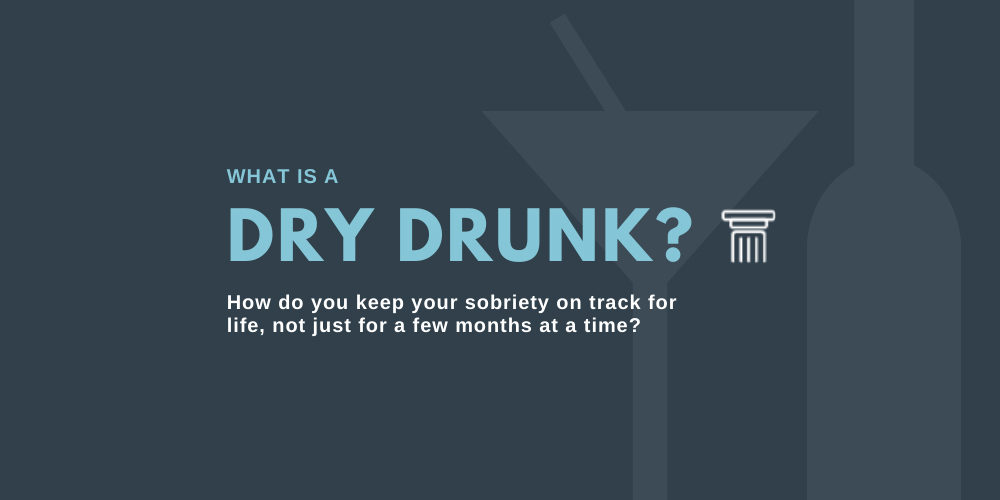Recovering from a substance use disorder and achieving lifelong sobriety involves more than abstaining from alcohol and drugs. You must also address the underlying behavior and mindset that led you to develop the disease of addiction. Otherwise, you could be at risk of developing dry drunk syndrome.
Warning Signs of Dry Drunk Syndrome
Dry drunk behavior, as originally defined in Alcoholics Anonymous, is any characteristic of substance abuse that persists into sobriety. Though this phrase may sound somewhat judgmental, it’s essential to understand that dry drunk syndrome is not due to inadequacy or a lack of effort. This issue can happen to anyone who is struggling to overcome addiction, either in the earliest stages of recovery or in the post-acute withdrawal phase.
While not everyone experiences dry drunk syndrome, here are some red flags that can alert you to a potential problem.
- Resentment or bitterness toward supporters who encourage you to stay sober
- Fear of relapsing, even if you have been sober for a long time
- Envying people who are not battling addiction
- Trying to bottle up unwelcome emotions instead of confronting them with effective coping techniques
- Feeling unmotivated
- Frustration with therapy, recovery group meetings or other aspects of treatment
- Choosing to focus solely on the positive memories associated with drinking or drug use, while ignoring all the harmful consequences
- Replacing the initial addiction with a different one, such as food or gambling
- Believing it is impossible for you to quit drinking or using
If you’re already living with depression, anxiety or other mental health concerns, these symptoms might further complicate matters and make you feel even worse.
Understanding Dry Drunk Syndrome
Some people begin drinking or using drugs as a crutch to help them handle complex emotions and to fill a perceived lack in their lives. Eventually, you will no longer feel like yourself when you are sober. That’s why meeting the “real you” can feel like such a tremendous obstacle in early sobriety.
Achieving sustained recovery involves more than abstaining from alcohol and drugs. Ultimately, your journey will require you to rebuild your sense of self and learn who you are at your core. This reality is overwhelming enough to confront, even without the additional challenge of losing the primary coping mechanism you have relied on for years. These difficulties are at the heart of dry drunk behavior.
How to Deal With Dry Drunk Syndrome
If you’ve noticed yourself falling into dry drunk behavioral patterns, your loved ones’ support and encouragement can help you learn to manage these symptoms and their impact. Ask for help when you are struggling or feel stuck in a rut with your progress. Support group meetings can be an invaluable tool, allowing you to meet other people who have overcome similar challenges.
Returning to treatment can be beneficial if you have a dual diagnosis or did not address the root causes of your substance use disorder the first time you went to rehab. At Pillars Recovery, our client-first philosophy has allowed us to achieve outstanding outcomes for the people who entrust us with their recovery. As a Joint Commission-accredited facility, we have committed to exceeding the highest possible standards of care.
To learn more about our effective medication-assisted detox process or any of the other evidence-based methods we use to help young men and women learn to manage the disease of addiction, please reach out to our California drug and alcohol treatment center today.







